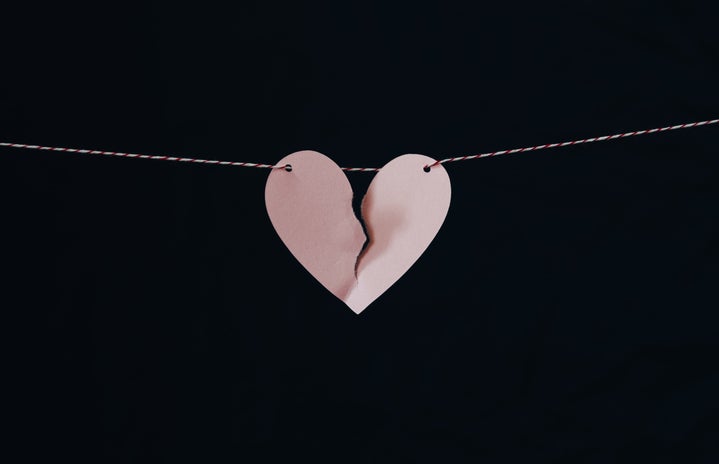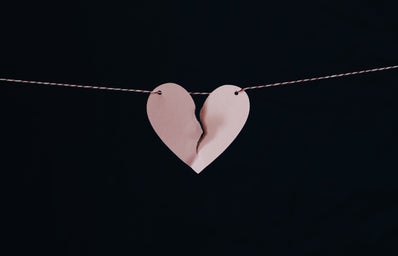Well, you wouldn’t be here if you weren’t in trouble.
Maybe you didn’t call them back, or you forgot about plans you’d booked months ago, or you sorta-kinda kissed their ex-boyfriend—the point is, you did something that hurt your best friend, and you need to do damage control ASAP.
Inspired by a recent fallout that happened in my own life, I decided to put a spin on an article my partner-in-crime Hannah wrote a little under a year ago titled, “The End of a Friend: Do’s and Don’ts.” While hers mainly focuses on naturally-faded friendships, mine is meant to shine light on the ones that are on the brink of fracture due to the actions of one person.
This piece is a mixture of tough-love realities and self-love mantras that helped me get through my own bestie breakup. I hope this does the same for you, or at least allows you to begin a work order to mend whatever frayed threads remain in your friendship and within yourself.
So, without further ado, this is your guide on what to do when you’ve hurt your best friend.
Own up to your sh*t
When you know you’ve done something that hurt your best friend, it can be one of the hardest things to admit. You may be tempted to sweep what happened under the rug, but there’s nothing worse than a bigger blowout occurring later because you waited to take responsibility. If you truly value your friendship, prioritize being the one to confess to your fault rather than letting someone else via hearsay. Be proactive and nip the tension in the bud.
Reminder #1: Telling your best friend something you know will hurt them is really brave of you. By doing so, you’re showing you value your friendship and want to make an effort to overcome this conflict (and future conflicts) together. It takes a mature person to fess up to something despite not knowing what consequences may ensue. You did the right thing, even though it may not seem like it.
Make peace; say your piece
After rattling the cage with your confession, you’re likely in need of an olive branch. Do your best to clear the air in person, over the phone or via Facetime or Skype so they can hear the sincerity in your voice. Maybe even craft a handwritten letter if there’s a great deal of distance between you two. Only resort to texting if it’s your last possible option of contact because not only will your message read emotionless to them, but also there’s a lot of room for your former friend to make false assumptions and fill in the blanks where they don’t need to. Translation: texting may lead to further miscommunication.
Whatever method in which you ultimately choose to send your message, apologize for hurting them—a simple “I’m sorry” won’t work like it did when we were in kindergarten. Acknowledge the fact that you’ve been friends for a long period of time, that you’ve been through a lot together. Tell them you would never intentionally hurt them. Be truthful and construct an apology you’d need to hear if the tables were turned.
When you’ve said your piece, there’s a good chance they won’t want to speak to you for awhile and you need to be understanding of this. They’re perfectly entitled to their reaction. If they cut off communication with you, especially on social media, don’t be petty and talk badly of them (even though it stings to be unfollowed or blocked). Seeing your name in their contact list or your pics in their daily feed may be too much for them to handle. Be the bigger person and recognize that you don’t get to dictate how they personally deal with this issue.
Reminder #2: No matter the severity of the sitch, you’re only human at the end of the day. You’re not perfect—none of us are! Therefore, one of the most important steps of surviving a bestie breakup is to forgive yourself for whatever caused the fallout. It may take awhile, especially because some of us tend to believe condemning ourselves is easier (myself included), but you’ll never be able to move on if you continue to blame yourself and pine over the mistake you made.
Time is your new best friend
Sorry for the play on words, but time truly is the best healer. As Hannah wrote, healing is an individual process: everyone heals in different ways and at different paces. Your hurting homie may come around after a few hours or weeks, or they may not come around at all—either way, you have absolutely no control over this final phase. You can’t make them read your messages. You can’t make them understand your side of the sitch. You can’t make them want to forgive you. All that you can do is give them time and space to heal because it’s up to them now. The ball’s in their court, and only time will tell.
Reminder #3: This last one may be a hard pill to swallow, but perhaps the way your former friend reacted to the issue at hand is a reflection of how they valued your friendship. Of course, you need to be considerate of the timing of the conflict, as well as their mental state beforehand (which could have been affected by any combination of stressful or traumatic events). However, if they straight-up cut you out of their life, maybe your bond wasn’t as tight as you’d thought.
Maybe your friendship had run its natural course. Maybe your bygone bestie was secretly looking for an out of your friendship. Maybe you were secretly looking for an out of your friendship. The list of uncertainties could go on, but remember that you ultimately took responsibility for your actions and apologized for hurting them—it takes two to maintain a healthy friendship. It’s now their turn to meet you halfway with mending the burnt bridge.

Not all friendships last forever, and that’s okay because each one teaches us something we’ll bring to the next.
You will get through this.
Everything is going to be okay.
– HCXO





